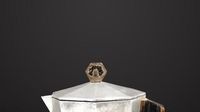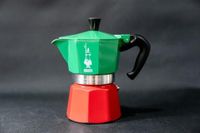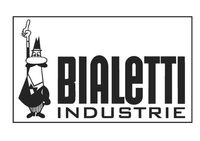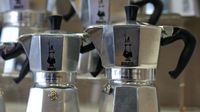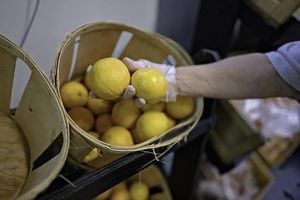Bialetti, the renowned Italian brand famous for its iconic moka pot, is set to undergo significant changes as it prepares for a new chapter under the ownership of Hong Kong's NUO Capital. This acquisition marks a pivotal moment for the company, which has struggled in recent years amid fierce competition and financial challenges.
Founded in 1919, Bialetti is celebrated for its octagonal moka pot, a staple in Italian households and a symbol of Italian design that even finds a place in New York's Museum of Modern Art (MoMA). However, the company has faced mounting difficulties, including a reported loss of €1.1 million in 2024 and debts totaling €81.9 million. These financial woes were exacerbated by the COVID-19 pandemic, which thwarted its expansion plans and led to unsuccessful product launches.
On April 16, 2025, NUO Capital, an investment vehicle controlled by the affluent Pao Cheng family of Hong Kong, announced its agreement to acquire 78.6% of Bialetti's shares for €53 million. This deal is expected to close by the end of June 2025, pending regulatory approval. Following the acquisition, NUO plans to launch a mandatory tender offer for the remaining shares at a price no less than €0.467 each, a significant premium compared to the recent market value of Bialetti's shares.
NUO's acquisition strategy is not just about ownership; it aims to rejuvenate the Bialetti brand and restore its market position. The investment firm plans to inject €49.5 million into Bialetti, which will be complemented by a refinancing plan involving loans from various banks. Specifically, the deal includes a junior loan of up to €30 million from Illimity and AMCO and a senior loan of up to €45 million from Banco BPM, BPER Banca, and Banca Ifis.
As part of the restructuring process, Bialetti's CEO Egidio Cozzi will remain in his position, ensuring continuity in leadership as the company transitions into this new phase. The existing management team will work alongside NUO to navigate the competitive landscape dominated by single-serve coffee technologies, which have significantly changed consumer habits.
In a statement, Tommaso Paoli, CEO of NUO, expressed optimism about the acquisition, stating, "Bialetti represents a significant and wonderful challenge for us, placing us in front of new growth objectives for a historic brand of Italian culture and tradition." This sentiment reflects a broader trend of Asian investment in European firms, where traditional brands are revitalized through modern business strategies.
Experts suggest that this acquisition could serve as a case study for how to merge Eastern investment strategies with Western heritage brands, potentially leading to successful outcomes in a complex regulatory environment. The Italian government will scrutinize the deal under 'golden powers' regulations, which allow it to block or impose conditions on foreign takeovers.
Bialetti's current financial state underscores the urgency of this acquisition. The company has been in a precarious position since it signed a debt restructuring agreement in 2021. The combination of rising debts and competition from coffee capsule machines has led to a decline in its market presence, prompting NUO to act swiftly to secure the brand's future.
The moka pot, which has become synonymous with Italian coffee culture, was first introduced in 1933 and has since revolutionized home coffee brewing. However, changing consumer preferences, particularly the shift towards convenience and single-serve coffee solutions, have posed significant challenges for Bialetti.
As the market watches closely, the outcome of this acquisition could reshape the landscape of coffee brewing in Italy and beyond. It raises questions about the future of traditional coffee-making methods in an age increasingly dominated by modern conveniences.
For investors and coffee enthusiasts alike, the revival of Bialetti under NUO Capital's stewardship will be a fascinating journey to follow. The brand's rich history and cultural significance make it a compelling subject in the ongoing narrative of how established companies can adapt and thrive amidst changing market dynamics.
In conclusion, as Bialetti transitions to new ownership, the coffee world will be keenly observing how this storied brand navigates its challenges and seizes new opportunities. The potential for a successful turnaround could not only restore Bialetti's legacy but also set a precedent for other traditional brands facing similar headwinds.
